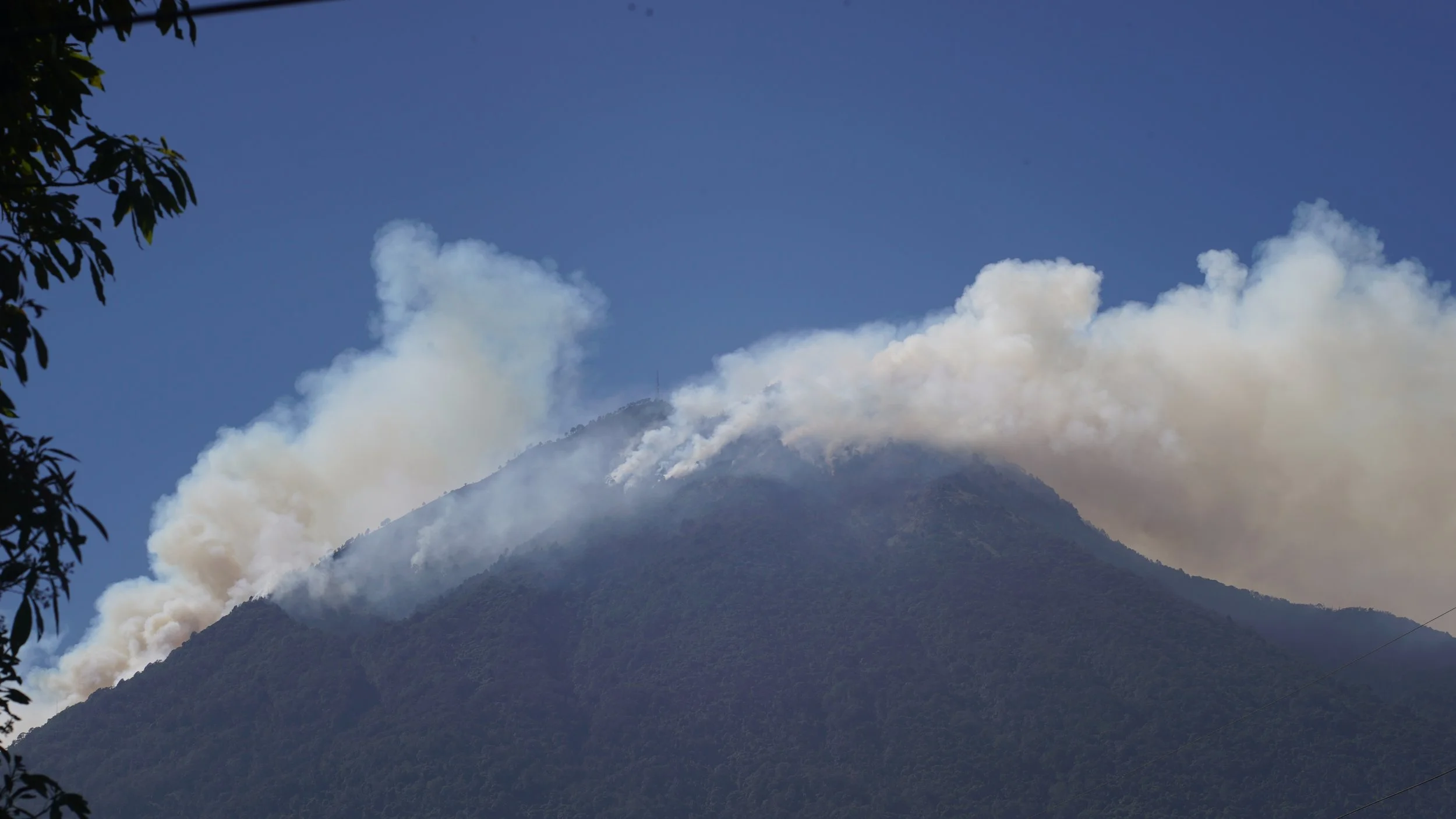24 HOUR GO BAG FOR EMERGENCIES AND natural DISASTERS IN ANTIGUA GUATEMALA - PREPAREDNESS SERIES
Living in a country prone to natural disasters can be unnerving. But preparedness is the best antidote to fear. You can’t worry about what you’ve already planned for.
Antigua Guatemala has a long and sobering history of natural catastrophes. From the destruction of the original capital by a lahar from Volcán de Agua in 1541, to the deadly Fuego eruptions in 2018, to the earthquake swarms we experienced just last week—our land is alive, unpredictable, and deeply powerful.
And while emergency services like CONRED and INSIVUMEH are well-intentioned, their resources can be quickly overwhelmed in a major crisis. That’s why personal responsibility is essential. Preparedness isn’t just practical—it’s empowering. When you take ownership of your own safety, you become autonomous, resilient, and free.
This guide is designed to help individuals or small families prepare a 24-hour emergency go bag, with special attention to the risks most relevant to Antigua: earthquakes, floods during rainy season, volcanic activity, and forest fires in the months of dry season.
Everything listed should fit into a small to medium-sized backpack, ideally stored near the door, in your car, or somewhere you can grab it fast. This is the first part of a preparedness series tailored specifically to our region.
CLOTHING.
1x baseball cap or wide-brim hat
1x scarf or shemagh (dust, sun, or smoke protection)
1x rain poncho
1x weatherproof lightweight jacket
1x long-sleeve shirt
1x T-shirt
1x pair of durable, comfortable trousers
2x pairs of thick wool socks
2x undergarments
1x sturdy leather or utility belt
1x pair of waterproof hiking boots
1ST AID KIT.
Emergency whistle
KN95 masks (ash, dust, illness)
Toothbrush & small toothpaste
Over-the-counter antibiotics (broad spectrum)
Pain relievers (e.g. ibuprofen, acetaminophen)
Prescription meds
Nitrile gloves
Scissors & tweezers
Sterile plasters and dressing pads
Antibiotic ointment
Antiseptic wipes
Gauze rolls
Adhesive tape
Mini trauma kit
Hydrogen peroxide
Anti-diarrheal medication
Antihistamines
Bar of soap & small pack of wet wipes
Emergency space blanket
Oral (non-glass) thermometer
Small syringe
Compact mirror (also for signaling)
First-aid manual
FOOD AND DRINK.
Canned food (with pull tabs), beef jerky, energy bars
1x chocolate bar (for morale/calories)
Salt (for hydration and food)
1-liter water bottle (metal preferred, can be heated)
At least 1 gallon of water per person per day
COMMUNICATIONS.
Fully charged phone (with charger and power bank)
2x handheld radios (e.g., Baofeng UV-5R, affordable and programmable)
Printed emergency contact list (in case phones die)
ELECTRONICS.
USB flash drive with scanned documents (ID, passport, licenses, deeds, insurance, etc.)
Power bank
Extra batteries (AA, AAA)
12v car outlet adapter
Charging cables for all key devices
SELF DEFENSE.
In emergencies, law enforcement may be overwhelmed or unreachable. Self-defense is not paranoia—it’s prudence.
Full-tang hunting knife or machete
Tactical flashlight (high-lumen, strobe capable)
Legal firearm (if trained and licensed):
Small house: 9mm handgun
Large house: 12-gauge pump-action shotgun (birdshot minimizes over-penetration)
Rural property: Semi-automatic rifle
Defensive-grade ammunition
Always carry your valid firearm license
ENERGY & FUEL.
Off-grid power (if possible) or back-up gas stove and 1kW+ generator
At least 1x 5-gallon container of fuel (diesel or gas, depending on your system)
TOOLS.
4x carabiners
10m high-duty rope
10m paracord
5x5m waterproof nylon tarp
Flat-head & Phillips screwdrivers
Duct tape
Victorinox or multitool pocket knife
Short machete
Small hatchet
MISCELLANEOUS.
Q500 in cash (small bills preferred)
Prescription glasses/contact lenses
Notepad & 3x pens
Box of matches + 1x lighter
10x zip-lock bags
Sleeping bag
Small or medium tent
last but not least
PLAN, PREPARE AND PRACTICE.
Gear alone isn’t enough. Practice using it. Familiarize yourself with your tools, rehearse emergency drills with your family, and talk through different scenarios before they happen.
Emergencies don’t wait for convenience—and neither should you.
Bomberos Municipales: 123
Bomberos Voluntarios: 122
Bomberos Departamentales: 1554
Policía Nacional Civil: 110 y 120
Cruz Roja: 125 y 2381-6565
